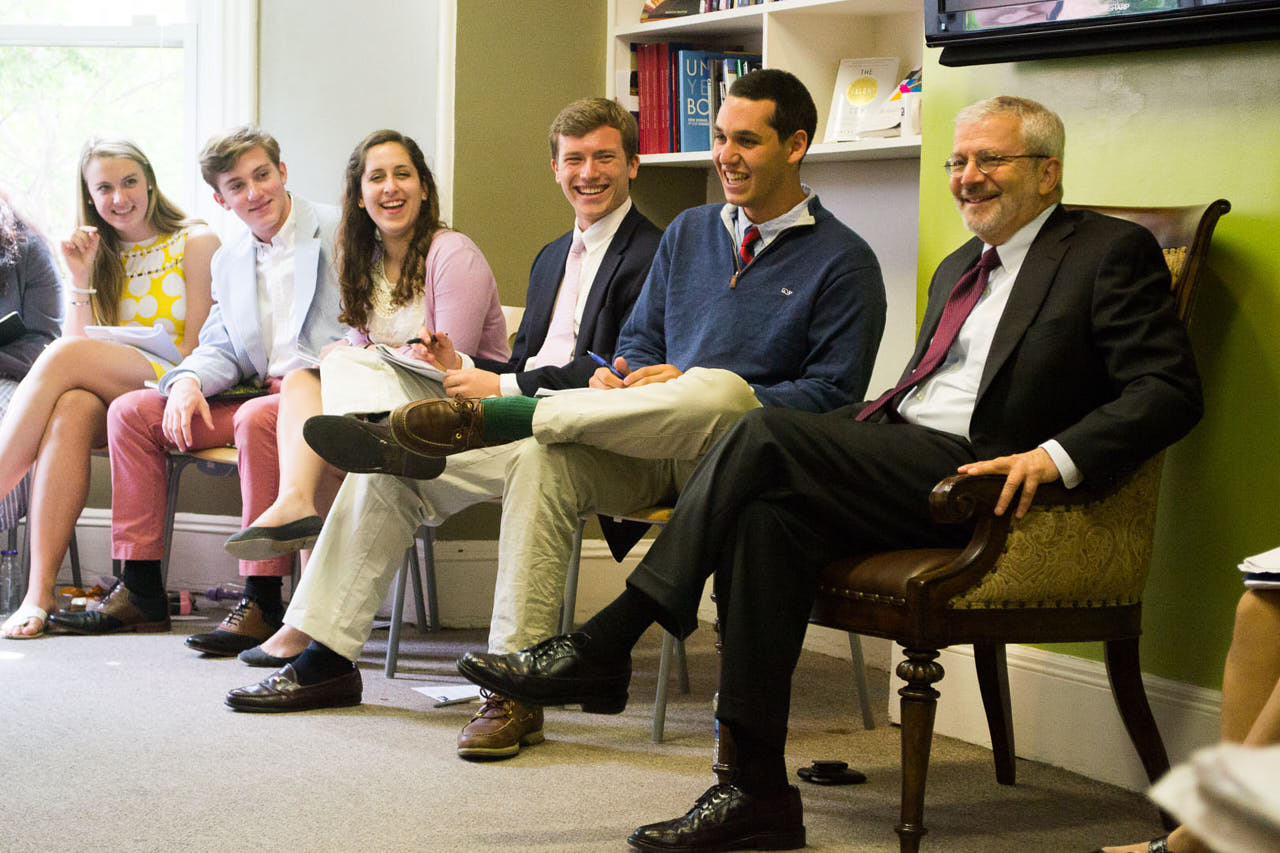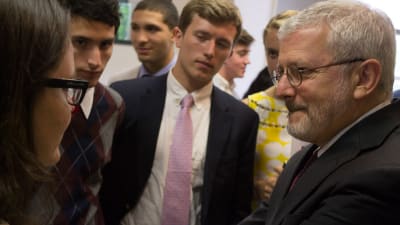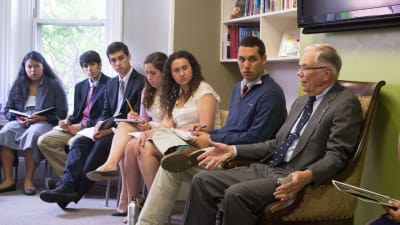Spring 2013 final weeks: Former White House Chief of Staff Josh Bolten, Vietnam War POW Bob Shumaker, Special Assistant to the Secretary of Defense Bailey Hand, Venture Projects, and Crisis Simulation
The final days of the Spring 2013 semester were packed! Our now-famous Crisis Simulation case study was the highlight of the week before final exams. The intense, cumulative case study includes visits with experts who have faced challenging crises, followed by a four-hour crisis simulation that puts students in a realistic, multifaceted national security crisis.
The students began their research by visiting the Pentagon, where they met with longtime SEGL guest expert Bailey Hand. Hand has served as Special Assistant to three Secretaries of Defense (Robert Gates, Leon Panetta, and Chuck Hagel). She spoke about the leadership qualities each possessed, as well as the effects of the sequester on the Department, the U.S. role in several current conflicts, and working as a woman in a male-oriented profession. Students were also treated to a special look inside the Secretary of Defense’s office and a Pentagon tour.

Former White House Chief of Staff Josh Bolten visited SEGL later in the week to discuss his key role in managing the White House on September 11th. Bolten gave a riveting (and occasionally humorous) account of that morning, stopping frequently to ask students what they would have done as the situation developed. What is your first step when you learn there is a terrorist attack? Would you allow Americans to die in order to prevent a greater loss of life? Who do you keep in the bunker if there isn’t enough air for everyone? Bolten’s Socratic style helped students see the complexity of crisis; he also engaged them in a challenging conversation about torture, with students taking many sides of the ethical dilemma.

We also received a special first-time treat in our final week: a visit from noted Vietnam prisoner of war Bob Shumaker. Shumaker stayed at the notorious Hanoi Hilton (the name he gave to the North Vietnamese prison) with John McCain, James Stockdale, and others. He and other prisoners developed a “tap code” that allowed them to communicate secretly (you can hear him discuss this on PBS here). His talk helped students understand how to forge the mental stamina required to manage times of crisis.
On Friday the students jumped into a full-fledged crisis simulation, complete with video clips, top-secret intelligence, high level negotiations, faculty role-playing, and many lessons learned. Each student played a different essential role in the Executive Branch. Though we can’t give details of the actual crisis (some elements may be repeated in future semesters!), it was wonderful to see the students collaborate well under pressure.
After a final journal reading on Saturday afternoon, the students had time for some fun before plunging into preparation for finals (and final projects). Two of several key assignments were the Credo (“given everything you have learned as a result of this semester, where do you stand on the ethical issues that matter most to you, and how do you want to live your life as a result?”) and a business plan for the social venture each student will launch in her or his local community at the end of the semester. Both of these projects showed students at their culminating best–drawing insight from across the term and from deep inside themselves.
In the middle of our final week together we took a break to enjoy the outdoors. Thanks to SEGL friend Abigail Wiebenson, we were able to continue a spring tradition and visit Sycamore Island, a small refuge in the middle of the Potomac river accessible to members only by an hand-powered ferry. It was a well-deserved respite in a busy week and a fitting opportunity to enjoy each other’s company without worrying about the next assignment or project.
This spring has been an amazing one for many reasons–at least 24 of them. We are so proud of this group and look forward to hearing about their successes in the coming months and years.









